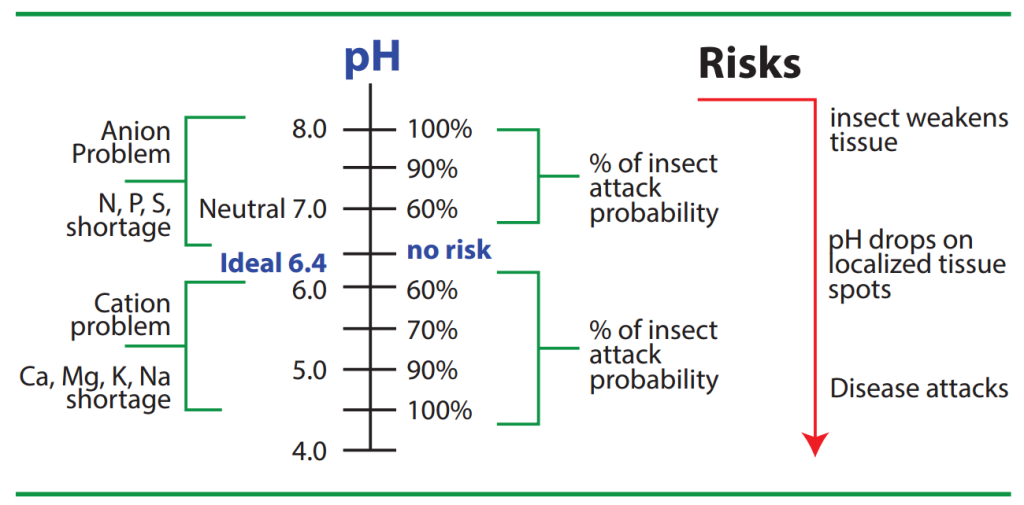Measurement of pH in Plant Tissue
Measurement of pH in Plant Tissue
It is often necessary to measure the pH of plant tissue to determine plant health. Where pH values are above 6.4, plants can be prone to insect attacks and specific diseases, thus an optimal pH of 6.4 is desired. Whilst laboratory soil and tissue tests are beneficial tools, they often do not yield results for days or weeks. We can thus use an alternate method of diagnosing plant health using certain types of pH meters. The LAQUAtwin pH meter, for example, can be used to determine the pH of plant tissue providing an easy and quick method to determine if plant tissue is at an optimum pH.
Method
To measure, take a few leaves, roll them into a tight ball and squeeze out a few drops of sap using a garlic press. Be sure to use a good quality stainless steel garlic press. Generally, the mature leaves of the plant give the most accurate picture of the plant’s health. You can then use a meter such as the LAQUAtwin pH meter to run the test. With this method, the plant tissue has sufficient moisture in order to provide a reading when placed on the sensor.
If the pH value is more than 0.5 away from the optimal 6.4 value, adjustments can be made to bring the plant tissue back to the optimal value:
- If the pH is >0.5 higher than 6.4, add a small amount of phosphate fertilizer.
- If the pH is >0.5 lower than 6.4, add a small amount of calcium/potassium fertilizer.
After a week, repeat the test; ensure the pH of the plant tissue is close to pH 6.4 for optimal plant health.
Ensuring an optimal pH of 6.4 in plant tissue will encourage healthy plant growth and prevent insects and diseases attacking the plant. If you can find a small compact meter that has the ability to conduct this test, it will provide you with a convenient and simple solution that can be carried around in your pocket for easy on-site testing.




